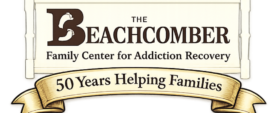It’s important to keep in mind that addiction to drugs or alcohol is a chronic mental health illness marked by an inability to manage drug or alcohol use. Addiction to drugs or alcohol is not a character’s fault, a weakness, or a moral failing. While using drugs or alcohol for the first time is frequently a choice, continued problematic use may be accompanied by brain changes that make it exceedingly difficult for some people to stop using the substance. Fighting addiction requires awareness of a problem and seeking treatment from an evidence-based treatment facility, not willpower or desire.
It helps to have a guide when trying to break a drug, alcohol, or behavior addiction because change is so challenging. The following measures can assist you in reaching your recovery objectives. If you follow all five recommendations, your chances of success are highest.
1. Set a quit date: Choosing a significant date such as a birthday, anniversary, or special occasion may be beneficial. You can better motivate yourself, strengthen your resolve, and give yourself time to get ready for the effects of quitting the addictive activity by setting a date. It allows you to make a plan for success and gather support for the endeavor.
2. Change your environment: Your house and place of employment should be free of any reminders of your addiction. For instance, keep your distance from folks who might urge you to interact with the addiction’s target (drug, alcohol, or behavior). Get rid of all alcohol, bottle openers, wine glasses, and corkscrews if you’re trying to quit drinking. Remove any playing cards, scratch tickets, or poker chips if you’re trying to stop gambling. Don’t allow anyone to use or bring reminders of the substance or behavior associated with addiction into your home.
3. Distract yourself: Create substitute activities, such as going for a walk or contacting a friend or relative to talk, to keep yourself occupied until the need to use passes, as opposed to giving in to it. Be ready to deal with situations that cause your urges, like being around people who use them.
4. Review your past attempts at quitting: Consider the things that did and did not work. Take into account potential recurrence causes and make changes as necessary. Although many addicts relapse, each effort shouldn’t be viewed as a failure. Instead, it ought to be a chance to correct what went wrong and create a stronger strategy for future success.
5. Create a support network: Ask your family and friends for their support and encouragement. Inform them of your decision to get help. Ask them not to use your addiction’s object in front of you. Get away from and terminate contact with suppliers of your addiction. Additionally, you might want to think about discussing the best way to stop smoking with your healthcare professional. Medication may be able to make the process easier for you and improve your chances of success.
Help is Available
The Beachcomber is a treatment facility for addiction located in Delray Beach, Fort Lauderdale, and Boynton Beach. It provides residential, intensive outpatient, and various group therapy forms. The Beachcomber is a family-run business providing services to the South Florida community for over 45 years. We offer evidence-based treatment for our clients and their loved ones.






